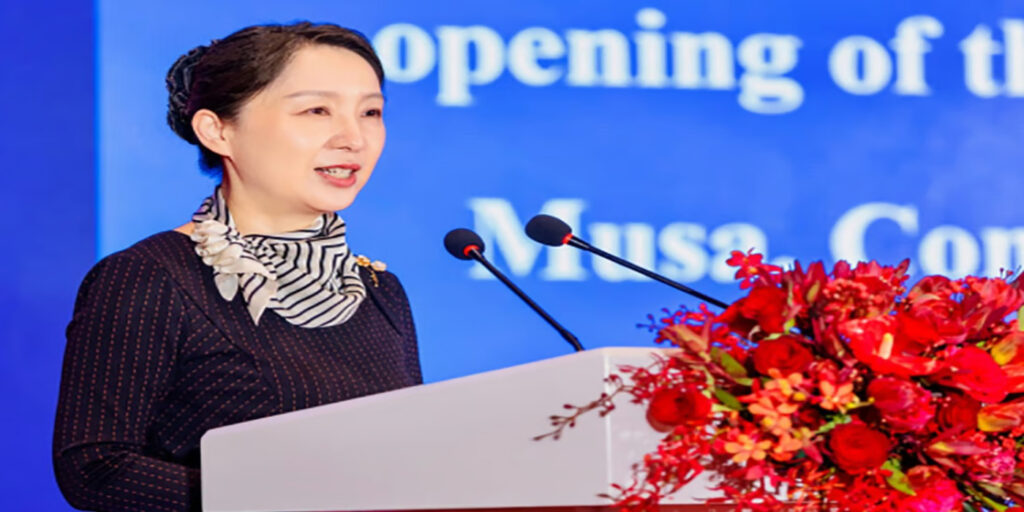Wu Xi, head of the Chinese foreign ministry’s consular affairs department, speaks at the opening ceremony on Tuesday.
Turkey has opened a consulate in the Chinese city of Chengdu, the first Middle Eastern nation to do so, as it seeks to strengthen ties with China despite tensions over Beijing’s treatment of the Uygur minority in Xinjiang.
It is Turkey’s third diplomatic mission in mainland China – it has an embassy in Beijing and a consulate in Shanghai – and will be responsible for the provinces of Sichuan and Yunnan and the city of Chongqing in the southwest, as well as Guizhou province in the south.
The consulate is the 15th foreign mission to open in Chengdu, the Sichuan capital.
Speaking at the opening ceremony on Tuesday, Wu Xi, director general of the Chinese foreign ministry’s consular affairs department, said the Turkish consulate would “build new bridges for friendly relations and mutually beneficial cooperation” between China and Turkey, according to a ministry readout.
Wu added that the Belt and Road Initiative – Beijing’s vast infrastructure investment scheme – “would bring new opportunities for pragmatic cooperation” between the two countries.
Yang Xingping, a vice-governor of Sichuan, said the consulate would bring “more opportunities for local cooperation” between the province and Turkey.
China is a leading trading partner of Turkey, one of the strongest economies in the Middle East. Last year, China’s exports to Turkey reached US$34.03 billion, while imports from Turkey stood at just US$4.52 billion, according to official Chinese data.
Battered by runaway inflation and a collapsing currency, Turkey is seeking to align with Beijing’s belt and road programme to push forward its own trade route known as the “Middle Corridor”. The route aims to revive the ancient Silk Road by connecting East Asia and Europe via Kazakhstan, the Caspian Sea, Azerbaijan, Georgia and Turkey with railways and roads.
China and Turkey have been strategic partners for years but there have been tensions over Beijing’s alleged human rights abuses against the mainly Muslim Uygur minority in Xinjiang. That is because of the Uygur diaspora in Turkey – some 50,000 Uygurs are estimated to live in the country.
But in recent years, Turkish President Recep Tayyip Erdogan has seen economic ties with China as more of a priority – a move being balanced with the US relationship amid a lack of commitment from Washington to the strategic partnership and its criticism of Ankara’s increasingly authoritarian policies.
In a congratulatory message after Erdogan was re-elected as president two weeks ago, Chinese leader Xi Jinping urged the two sides to work closely together to “promote mutual understanding and mutual support on issues concerning each other’s core interests and major concerns”.
Source : South China Morning Post


